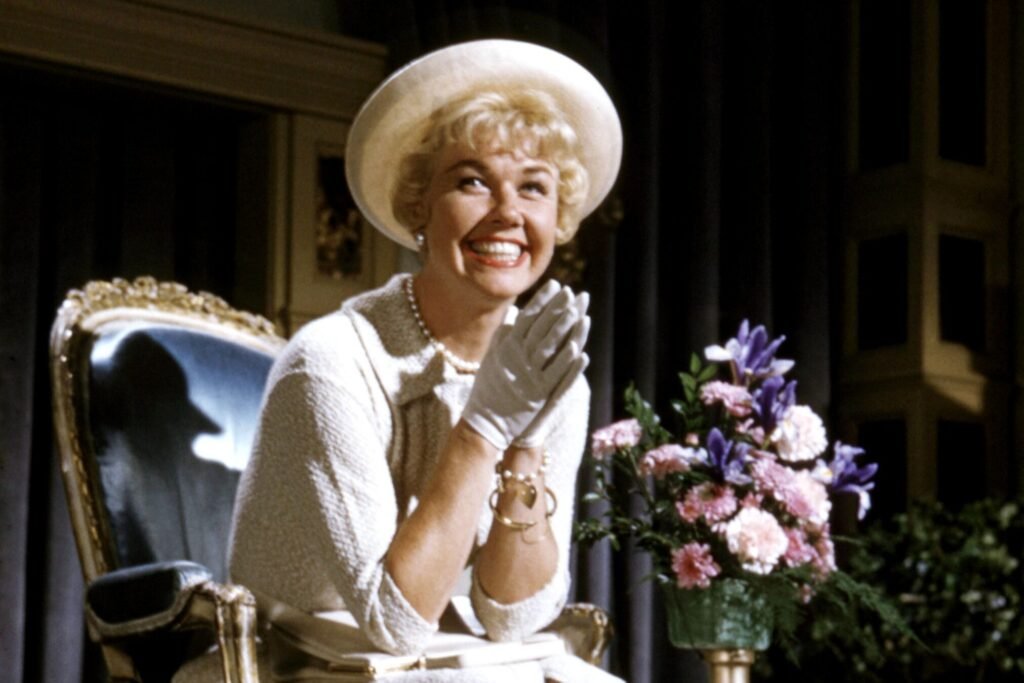For generations of moviegoers, Doris Day wasn’t just a star—she was sunshine personified, lighting up the silver screen with her wholesome charm, impeccable comedic timing, and that unmistakable honey-sweet voice. From the late 1940s through the 1960s, America’s sweetheart captivated us with performances that showcased her remarkable versatility, transitioning seamlessly from musicals to comedies to suspenseful dramas. As we reminisce about simpler times, let’s celebrate the performances that made us laugh, cry, and fall in love with the blonde beauty whose talent was matched only by her authenticity.
1. Pillow Talk (1959)
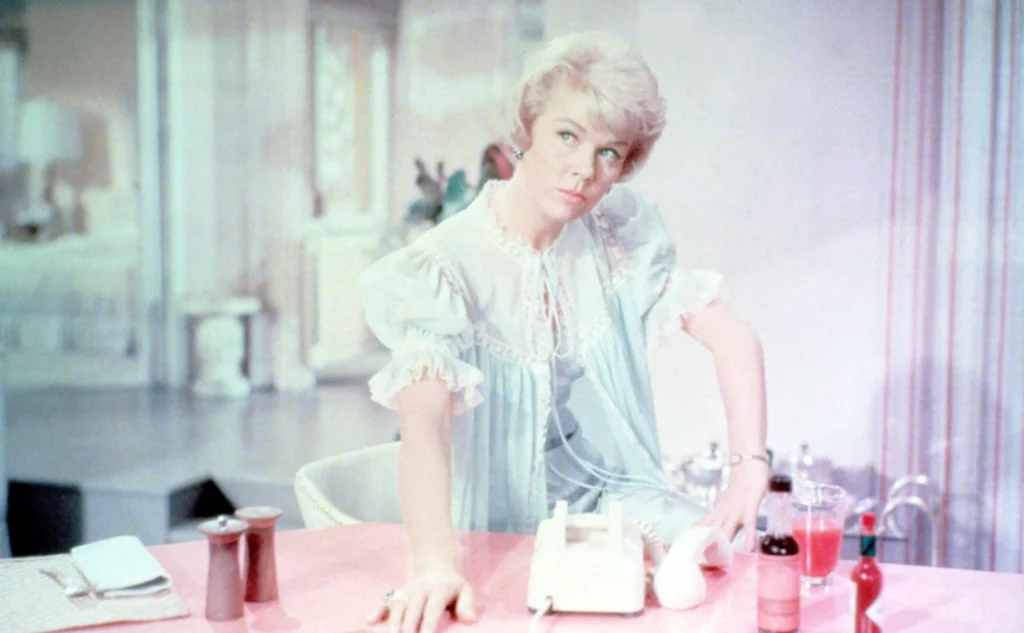
In this iconic romantic comedy, Day stars opposite Rock Hudson as interior decorator Jan Morrow, who’s forced to share a party line with a charming songwriter and notorious ladies’ man. Her perfect comedic chemistry with Hudson created magic that would lead to two more successful pairings, launching the template for the modern romantic comedy. The film earned Day her only Academy Award nomination and showcased her impeccable timing as she navigated the battle of the sexes with delightful indignation and vulnerability. BBC gives it a special shoutout for its unique split screen effect that made it stand out at the time.
Day’s Jan Morrow was the epitome of the independent career woman—stylish, successful, and unwilling to fall for smooth-talking men, especially when played by the devastatingly handsome Hudson. Remember how she transformed from prim professional to glamorous seductress while pretending to be “Bea Hofstadter” from Texas? Her performance proved she could deliver sophisticated adult comedy while maintaining that trademark wholesomeness that made parents comfortable letting their teenagers watch.
2. Calamity Jane (1953)
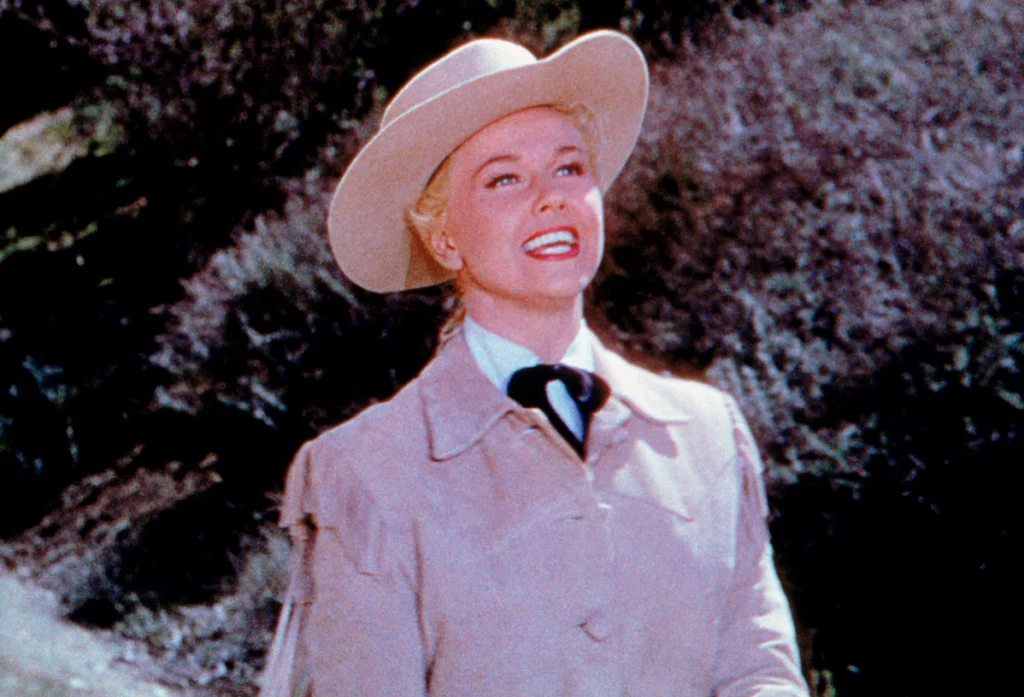
Day brought boundless energy and tomboy charm to her portrayal of the legendary Wild West figure, belting out “Secret Love” and the rollicking “Whip Crack Away” with contagious enthusiasm. Her physical comedy shines as she swaggers through Deadwood in buckskins before her heartwarming transformation into a young woman discovering her feminine side. This musical western allowed Day to showcase her remarkable singing talents while proving she could carry an entire film with her charismatic presence. According to The Guardian, it still stands the test of time.
The genuine emotion she brings to Calamity’s friendship with Katie Brown and her gradual realization of her feelings for Wild Bill Hickok makes this performance resonate beyond mere entertainment. How many of us hummed “Once I Had a Secret Love” after watching Day’s character blossom before our eyes? Her ability to balance comedy with tender vulnerability made this character one of her most beloved and relatable creations.
3. The Man Who Knew Too Much (1956)
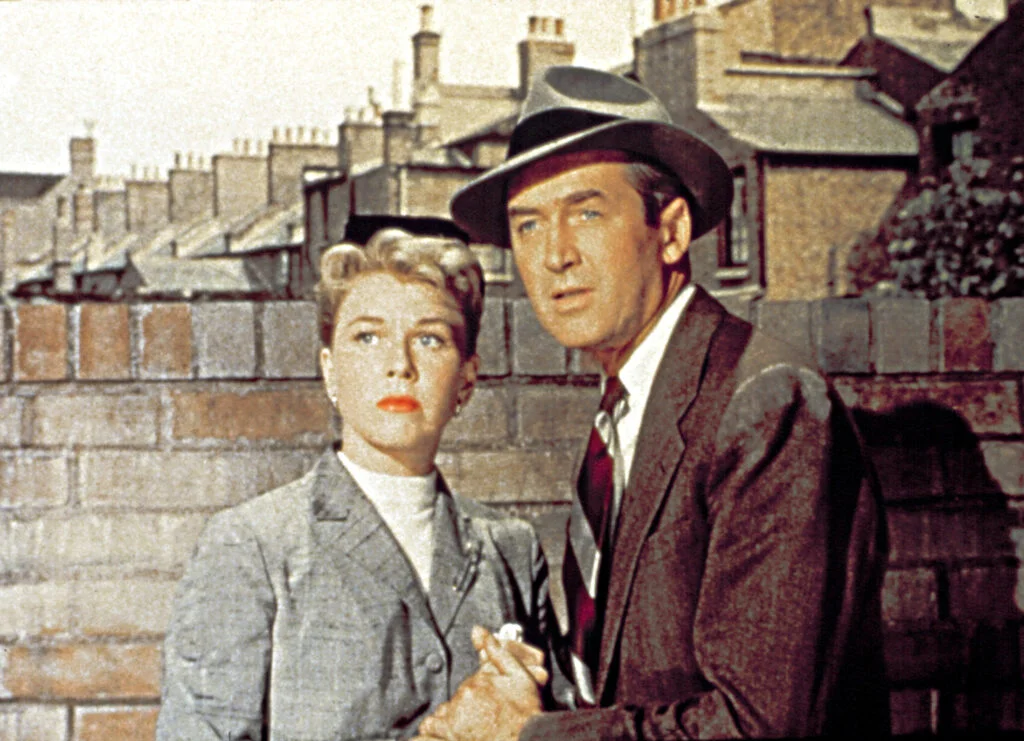
Alfred Hitchcock recognized Day’s dramatic potential, casting her alongside James Stewart in this suspense thriller about an American family entangled in an international assassination plot. Her performance as Jo McKenna, a retired singer whose son is kidnapped, reveals depths of maternal anguish and determination that showcase her surprising dramatic range. The film’s iconic scene—where Day sings “Que Sera, Sera” to locate her hidden son—brilliantly integrates her musical talent into the suspenseful narrative in a way that’s both emotionally powerful and plot-essential. IMDb sheds light on additional secrets behind this film, adding depth to one of Day’s best performances.
Day holds her own opposite Stewart, bringing emotional authenticity to every scene as a mother desperate to save her child. Remember how she maintains perfect composure during the Albert Hall sequence, knowing she must allow the assassination attempt to proceed before authorities can rescue her son? Her ability to convey complex emotions through subtle expressions demonstrated that beneath that sunny persona lay a genuinely gifted actress.
4. Love Me or Leave Me (1955)
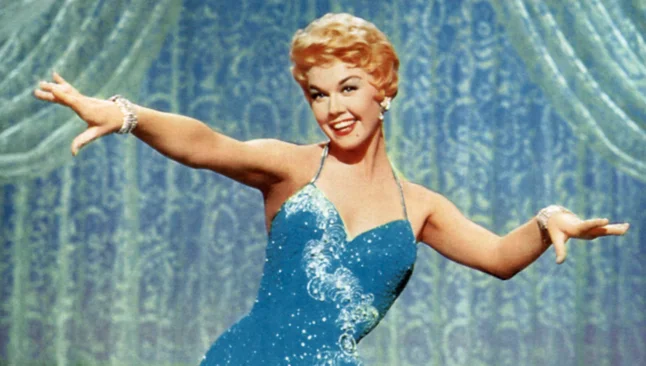
In perhaps her most dramatically demanding role, Day portrayed real-life 1920s singer Ruth Etting in this musical biography that explored Etting’s complex relationship with her gangster manager and husband, played by James Cagney. Her performance shattered expectations as she delved into darker territory, portraying Etting’s ambition, compromises, and entrapment in an abusive relationship with unflinching honesty. Day’s renditions of Etting’s songs, including the heartbreaking title number, display remarkable vocal versatility while serving the emotional journey of her character.
This role challenged Day to move beyond her wholesome image, and she responded with a performance of surprising depth and maturity. The tension in her scenes with Cagney crackles with emotional authenticity, demonstrating her ability to hold the screen with one of Hollywood’s most formidable actors. Many critics consider this Day’s finest dramatic performance—evidence that her range extended far beyond the romantic comedies that later defined her career.
5. Please Don’t Eat the Daisies (1960)
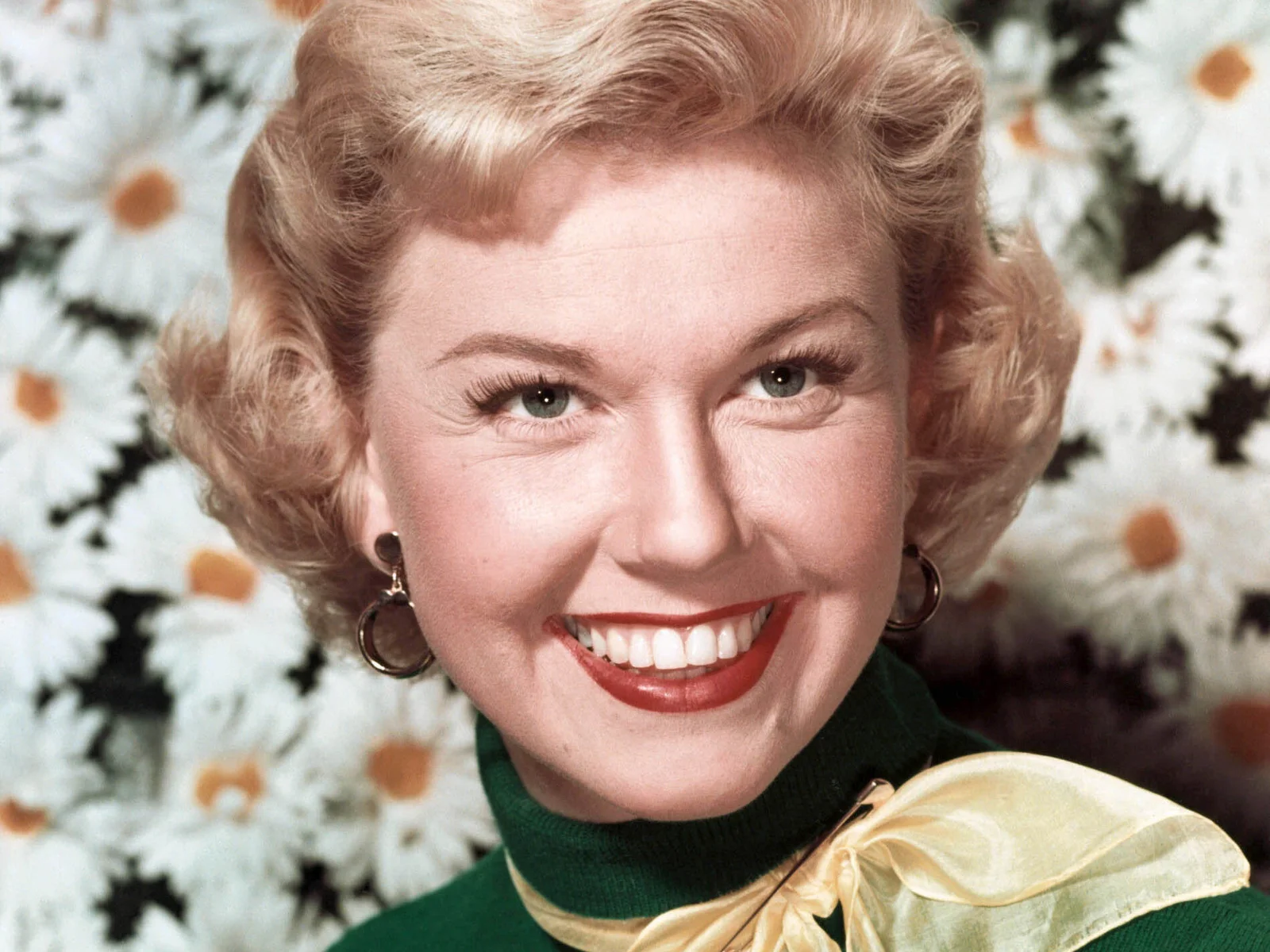
As Kate MacKay, a theater critic’s wife relocating her family from Manhattan to the countryside, Day perfectly captured the challenges of mid-century suburban motherhood with humor and heart. Her exasperation while managing four rambunctious boys, a huge dilapidated house, and a husband (David Niven) distracted by fame made for comedy that still resonates with anyone who’s ever felt overwhelmed by family chaos. The scene where she chases the family’s enormous Great Dane through an elegant theater during a performance exemplifies her gift for physical comedy that never sacrificed her dignity.
Day’s performance reflects the realities many women faced during the era—balancing family responsibilities while maintaining their own identities and marriages. How many mothers watched Day’s character masterfully handle domestic disasters with grace and humor, feeling a little less alone in their own daily struggles? Her warmth and authenticity made Kate MacKay feel like a friend rather than a character, someone you’d love to have over for coffee after the school drop-off.
6. The Pajama Game (1957)

As union grievance committee member Babe Williams in this adaptation of the Broadway hit, Day demonstrated her triple-threat talents while portraying a strong-willed working woman fighting for fair wages at a pajama factory. Her performance of “I’m Not At All in Love” perfectly captures the delightful contradiction of a character adamantly denying her growing attraction to the new factory superintendent. Day brings genuine conviction to the labor dispute storyline, making audiences care about the seven-and-a-half-cent raise as much as the blossoming romance.
The musical numbers showcase her exceptional voice and dancing abilities, particularly in the steam-heat sequence and the romantic duet “There Once Was a Man” with John Raitt. Remember how she managed to be both firmly principled in the labor negotiations and vulnerably human in her personal interactions? Day’s performance elevated what could have been a simple romantic musical into a story with substance, reflecting the workplace concerns of everyday Americans while never losing its entertainment value.
7. That Touch of Mink (1962)
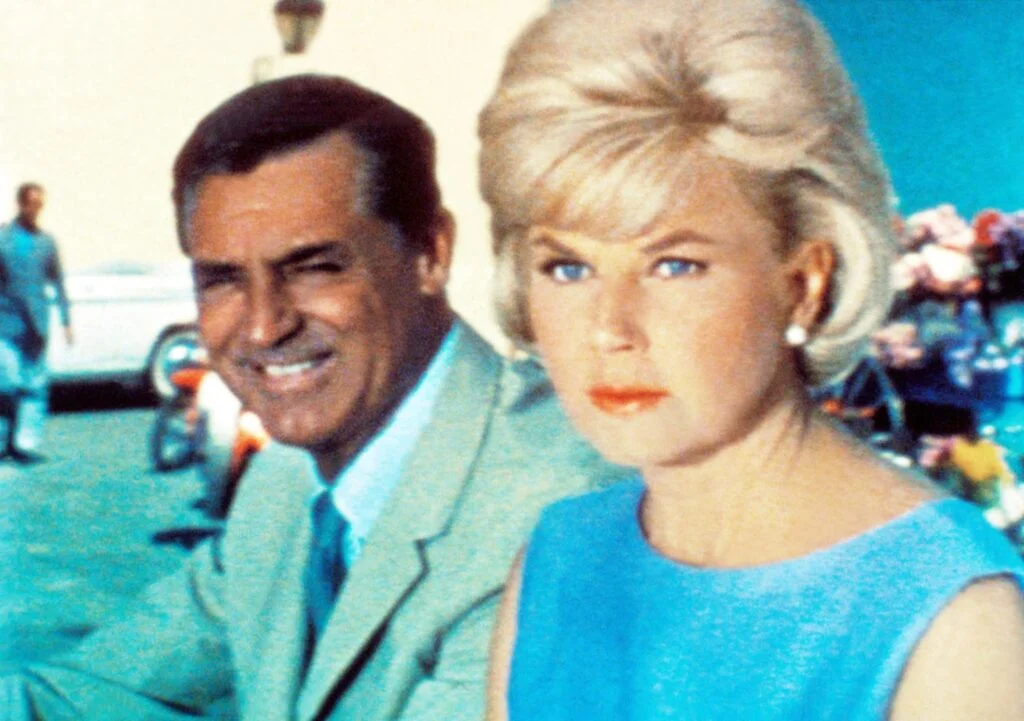
Pairing with Cary Grant, Day plays Cathy Timberlake, an unemployed woman who meets a wealthy businessman after his Rolls Royce splashes mud on her. Her character’s determination to maintain her virtue while attracted to Grant’s charming millionaire created comedy that pushed boundaries while never crossing them. The comedic highlights included her allergic reaction on their romantic getaway and her hilarious interactions with a sympathetic psychiatrist.
Day’s performance walks a perfect line between innocence and awareness, making her character’s moral stand believable while acknowledging the adult themes with sophistication. How many of us chuckled at her flustered reactions to Grant’s romantic pursuits or her friend Connie’s (Audrey Meadows) cynical advice? Even when dealing with the era’s sexual politics, Day maintained her relatable charm, allowing audiences to laugh at situations that reflected real social tensions about changing morals.
8. Send Me No Flowers (1964)
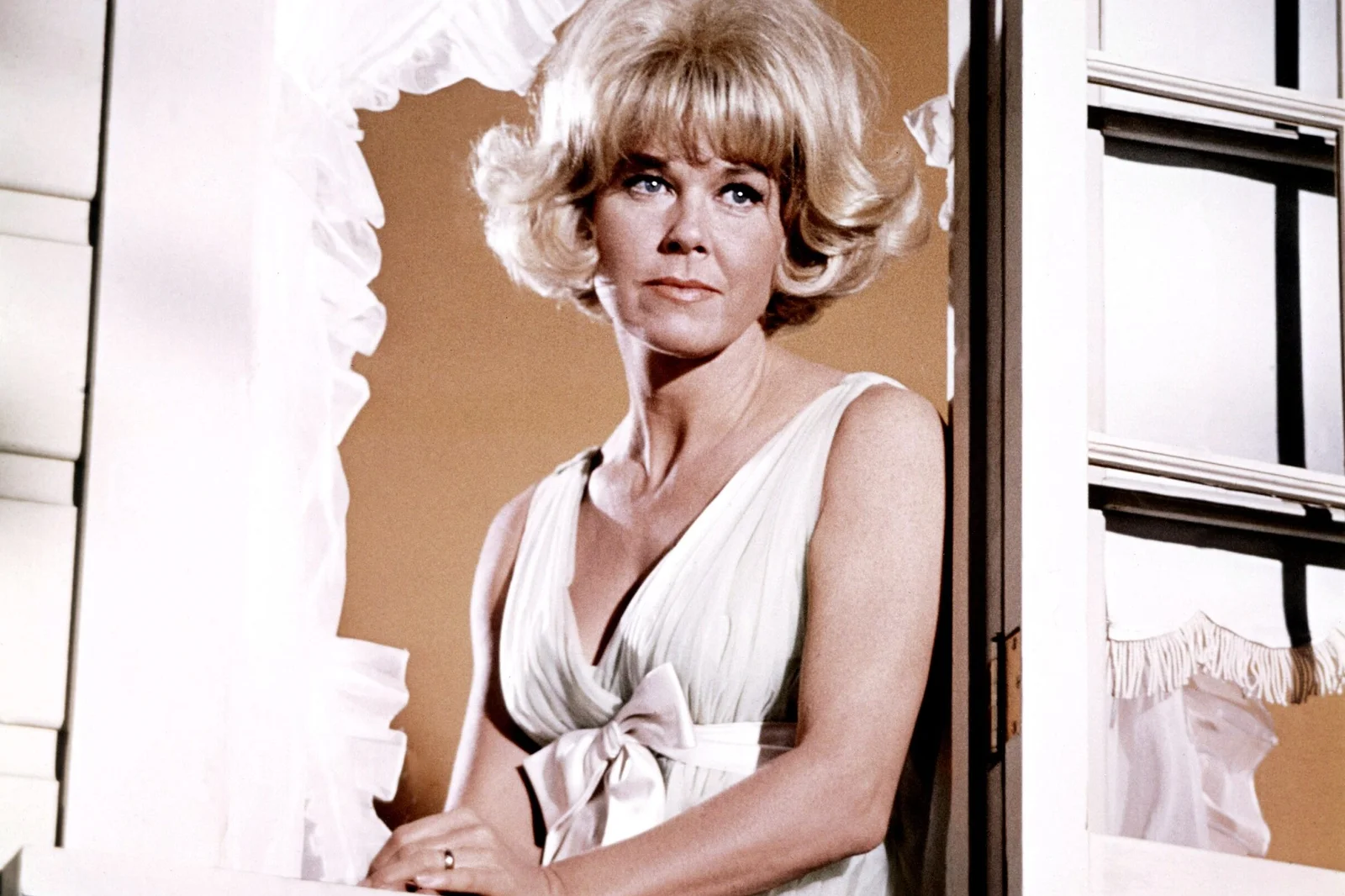
In her third and final pairing with Rock Hudson, Day plays Judy Kimball, whose hypochondriac husband becomes convinced he’s dying and tries to find her a new husband. Her bewildered reactions to her husband’s increasingly bizarre behavior showcase her gift for reacting to comedic situations with perfect timing and expressive facial responses. The scene where she gradually realizes her husband believes he’s dying—while she thinks he’s confessing to an affair—is a masterclass in miscommunication comedy.
Day brings surprising emotional depth to what could have been a one-note character, particularly in moments where Judy questions her marriage and confronts what she believes is her husband’s betrayal. Remember how quickly her character could shift from comforting wife to righteous indignation? This performance highlighted Day’s ability to ground even the most absurd premises in emotional reality, making audiences care about these characters despite the farcical situations.
9. The Thrill of It All (1963)
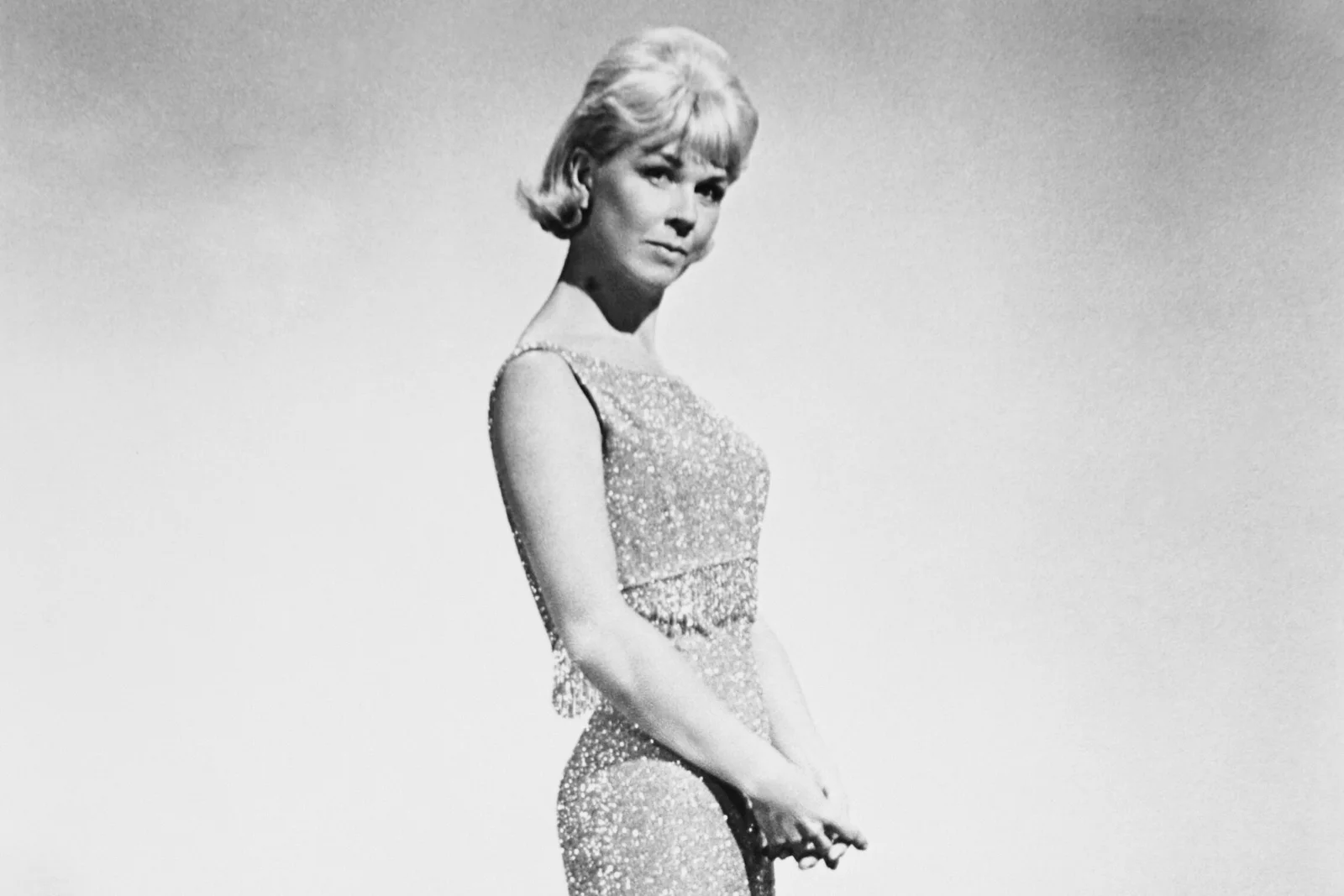
As Beverly Boyer, a housewife who unexpectedly becomes a television spokesperson for soap, Day captured the emerging tensions between career and family that were becoming increasingly relevant to American women in the 1960s. Her character’s journey from contented homemaker to reluctant celebrity offered plenty of comedic moments, including the famous scene where her husband (James Garner) drives into a swimming pool installed during his absence. Day’s performance reflects the changing social landscape for women with humor and sensitivity.
The chemistry between Day and Garner creates a believable relationship tested by her sudden fame and her husband’s traditional expectations. Remember how perfectly she portrayed the excitement of new opportunities alongside the guilt of disrupting her family’s routine? Her nuanced performance resonated with women navigating their own evolving roles, making this comedy relevant beyond its laughs and establishing Day as an actress who could address contemporary issues while entertaining audiences.
10. Move Over, Darling (1963)

Originally intended for Marilyn Monroe, this remake of “My Favorite Wife” showcases Day as Ellen Arden, who returns after being stranded on a desert island for five years—just as her husband remarries. Her comedic talents shine as she plots to reveal herself to her husband while sabotaging his honeymoon with his new bride. The physical comedy, including a scene where she gives her husband’s new wife a violent “treatment” at a health club, demonstrated Day’s willingness to tackle broader comedy with gusto.
Despite the farcical premise, Day grounds the story in the emotional reality of a woman fighting to reclaim her family and the life that was taken from her. Remember how tenderly she watches her children from afar, having missed five years of their lives? This ability to blend comedy with genuine emotion elevated what could have been merely silly into something that touched hearts while tickling funny bones.
11. With Six You Get Eggroll (1968)
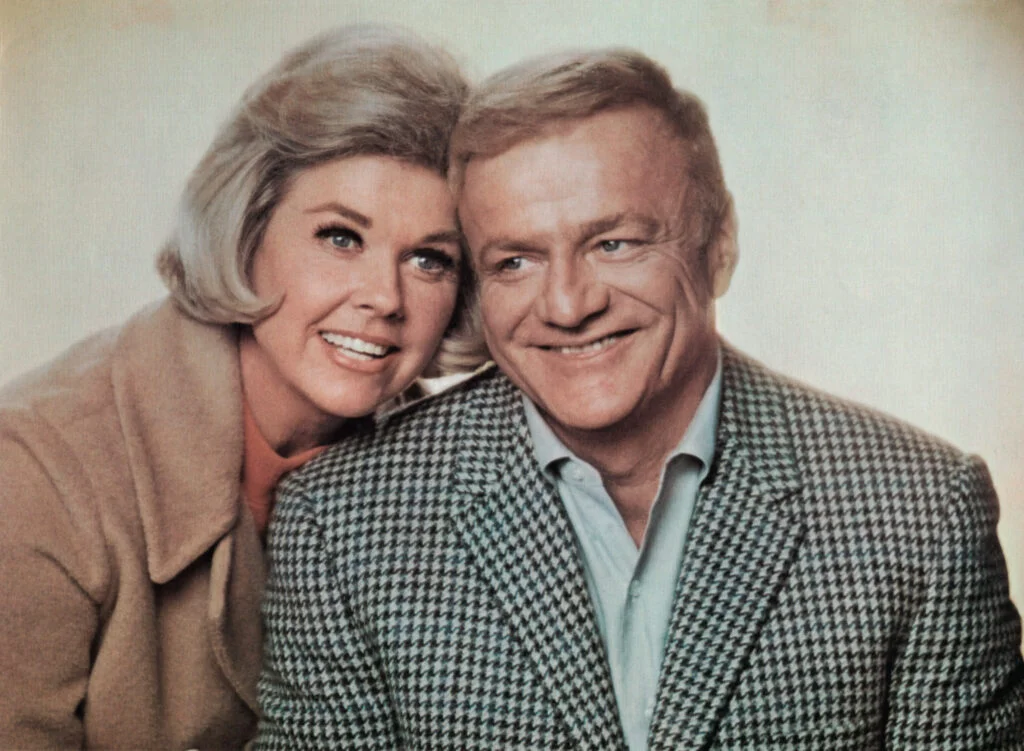
In her final film role, Day played widow Abby McClure, who marries a widower with a teenage son while raising three boys of her own. The blended family comedy tackles the challenges of merging households with warmth and understanding, anticipating themes that would become television staples in later decades. Day’s performance as a strong, loving mother managing a lumber business while navigating new romance showed her continued relevance as Hollywood and American society evolved.
The chemistry between Day and co-star Brian Keith creates a believable middle-aged romance between two people with established lives and responsibilities. Remember the chaotic breakfast scene where each parent tries to manage their children according to different rules? Day’s performance captures the frustrations and joys of parenthood with authentic emotion that resonates with anyone who’s ever tried to balance personal happiness with family responsibilities.
12. Teacher’s Pet (1958)
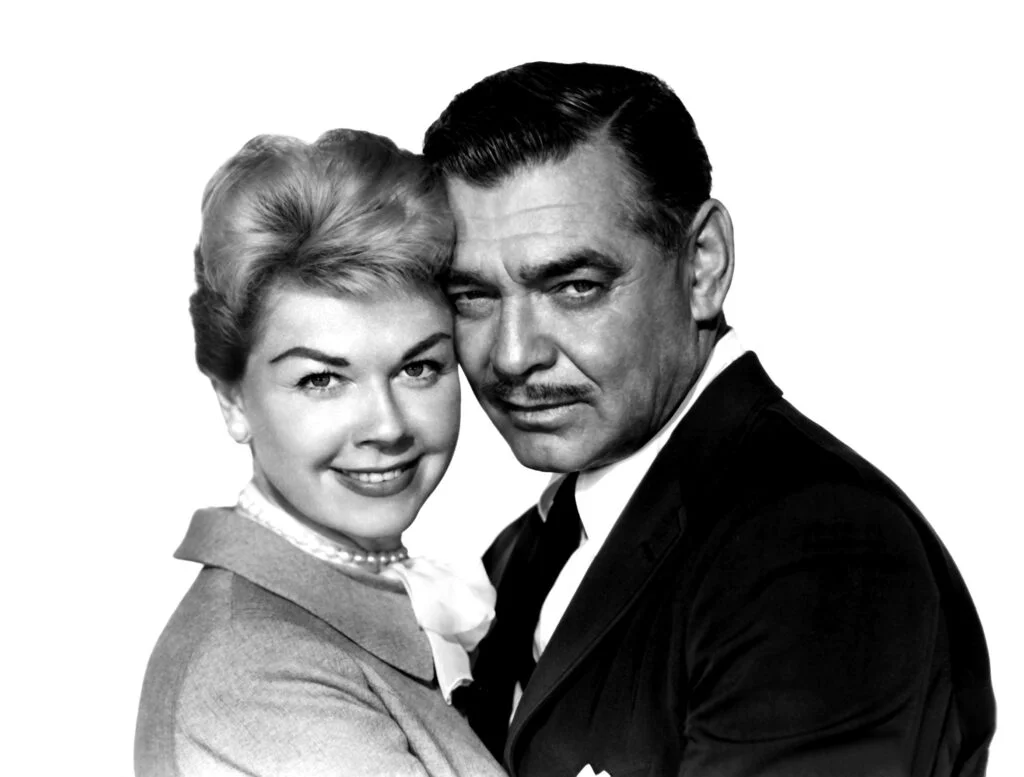
As journalism teacher Erica Stone, Day holds her own opposite Clark Gable, who plays a newspaper editor who enrolls in her class to prove that practical experience trumps academic training. Her portrayal of an intelligent, accomplished professional woman with principles and passion for her field offered a refreshing contrast to many female roles of the era. The sparring between Day and Gable creates intellectual tension as compelling as their romantic chemistry.
Day makes Erica’s dedication to journalism education believable while allowing glimpses of vulnerability that humanize what could have been a stereotypical bluestocking character. Remember how she maintained her professional dignity even when discovering her star pupil is actually the cynical editor who’s been mocking her methods? This performance showcased Day’s ability to play sophisticated adult roles that required more than just charm and a pretty voice.
13. Young at Heart (1954)
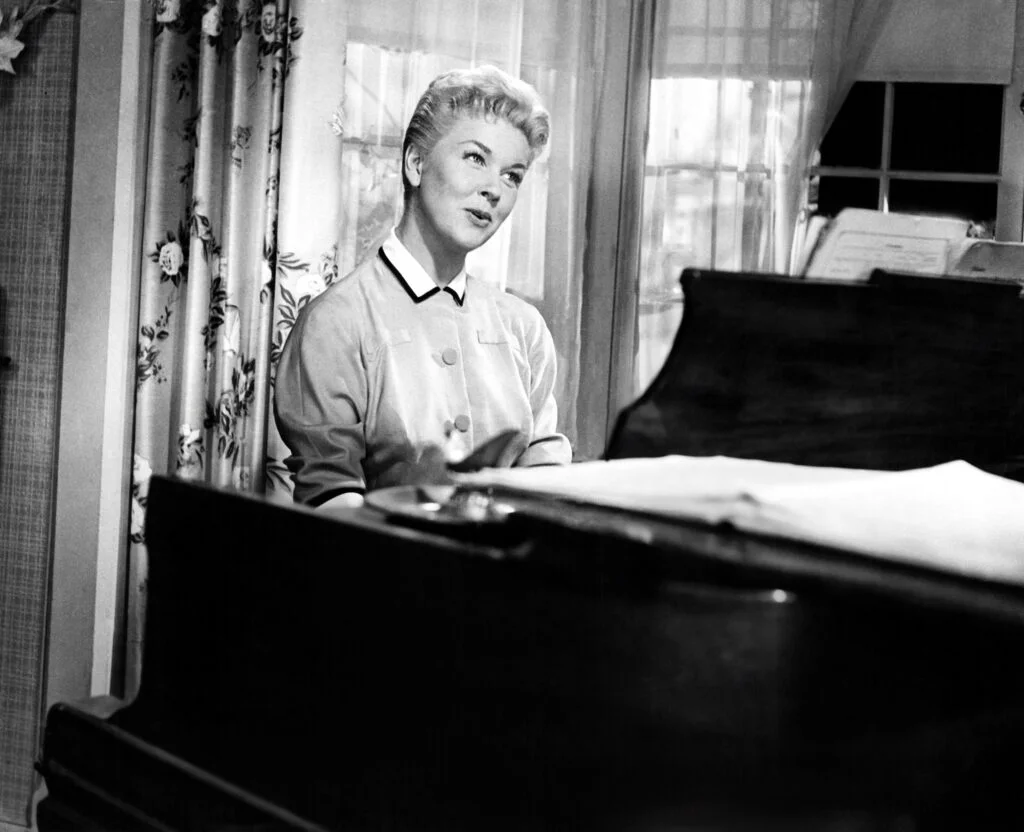
Paired with Frank Sinatra in this musical drama, Day plays Laurie Tuttle, whose optimistic outlook is challenged when she falls in love with a cynical, struggling musician. Her sunny disposition contrasts perfectly with Sinatra’s brooding character, creating emotional tension that elevates this beyond a typical musical romance. Day’s rendition of “Ready, Willing and Able” showcases her vocal talents while her dramatic scenes reveal the pain of loving someone determined to reject happiness.
The film’s darker elements allowed Day to explore more complex emotional territory than many of her later comedies permitted. Remember the heartbreak in her eyes when she realizes how deeply unhappy her husband remains despite her love? This performance demonstrated Day’s ability to convey profound emotion with authenticity, proving she could handle dramatic material with the same skill she brought to lighter fare.
14. It Happened to Jane (1959)
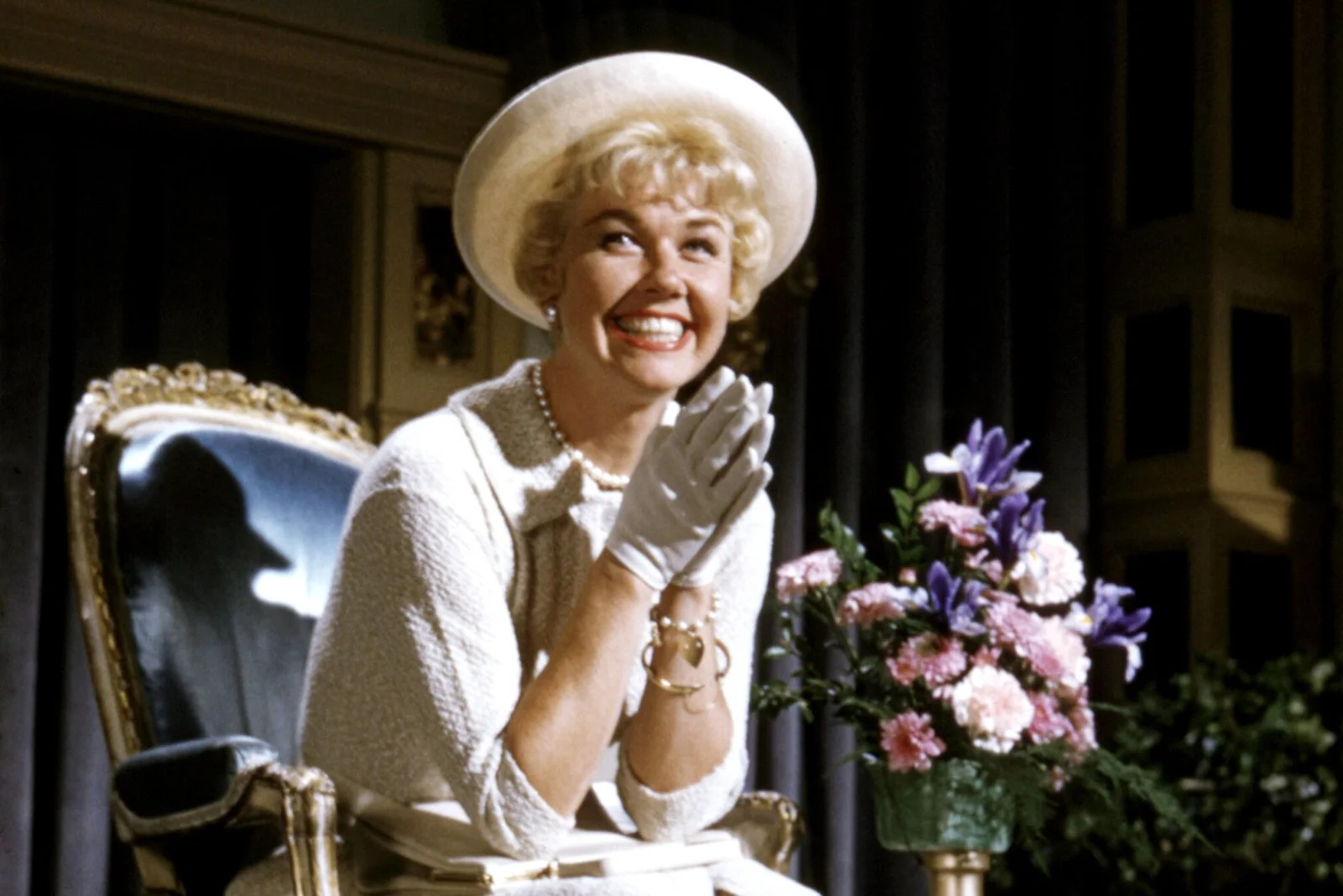
As lobster farmer Jane Osgood, Day takes on a powerful railroad magnate (Ernie Kovacs) after her shipment is ruined through corporate negligence. Her portrayal of a determined single mother fighting corporate injustice while reluctantly becoming a media sensation captures both strength and vulnerability with authentic charm. The small-town setting allows Day to create a character whose modest ambitions and determination to stand up for herself resonated with everyday Americans who understood what it meant to face powerful opposition.
Her chemistry with Jack Lemmon, who plays her childhood friend and lawyer, creates a sweet, believable romance between two people who’ve known each other all their lives. Remember how genuinely frustrated she becomes when her principle stand against the railroad threatens her business and her children’s security? Day makes us care about lobsters and small-town justice through the sheer force of her conviction and relatability.
15. The Glass Bottom Boat (1966)
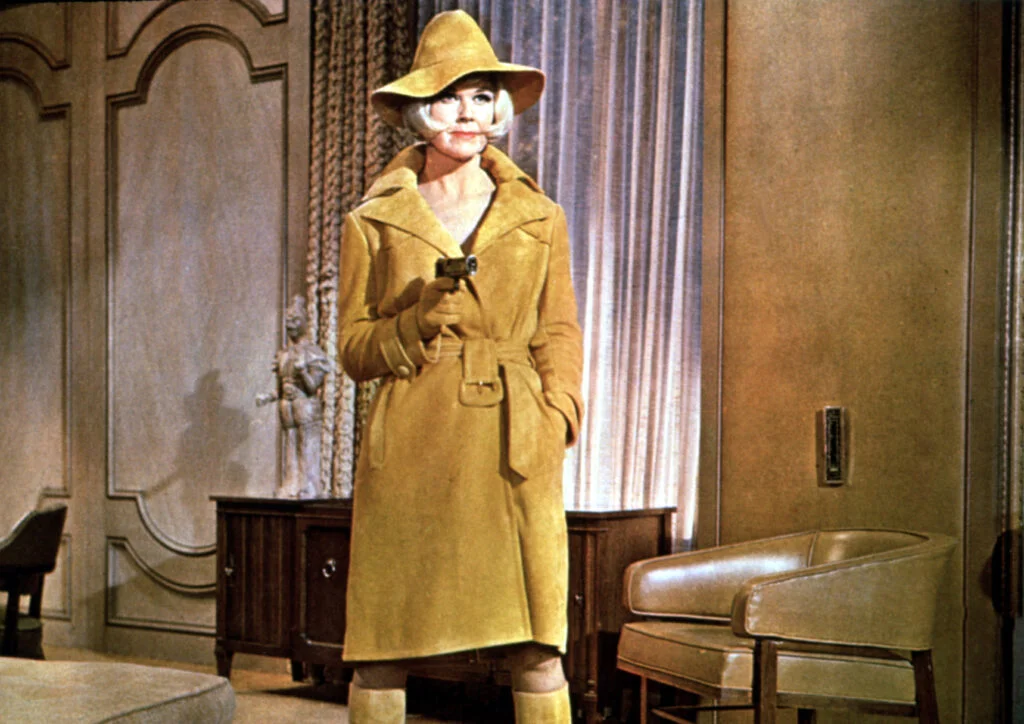
Embracing the spy comedy trend of the 1960s, Day stars as Jennifer Nelson, a widowed tour guide and mermaid performer who becomes mistakenly identified as a Russian spy. Her physical comedy shines in scenes like her mermaid costume malfunction and confused encounters with spy technology, while her chemistry with Rod Taylor creates a believable romance amid the absurdity. The film’s space-age setting at a NASA facility allowed Day to bring her wholesome persona into the contemporary world of the Swinging Sixties.
Day’s performance maintains her characteristic warmth and sincerity even as the plot becomes increasingly outlandish, grounding the spy parody in relatable emotions. Remember how she balanced being a devoted daughter to her Russian-born father (played by Arthur Godfrey) with her patriotic American identity? Even in this silly spy romp, Day created a character with genuine relationships and believable motivations, demonstrating why audiences continued to connect with her even as Hollywood and America underwent dramatic cultural shifts.
As we look back on Doris Day’s remarkable career, what stands out isn’t just her considerable talents as a singer, dancer, and actress, but the authentic humanity she brought to every role—the sense that beneath the perfect hair and dazzling smile was a real woman we might have known and certainly would have liked. From the early musicals to sophisticated sex comedies to her final films, she maintained a connection with audiences that transcended changing tastes and times. In today’s entertainment landscape of cynicism and irony, there’s something refreshingly genuine about Doris Day’s performances—reminders of an era when talent didn’t need scandal to shine and when charm was an art form all its own.

